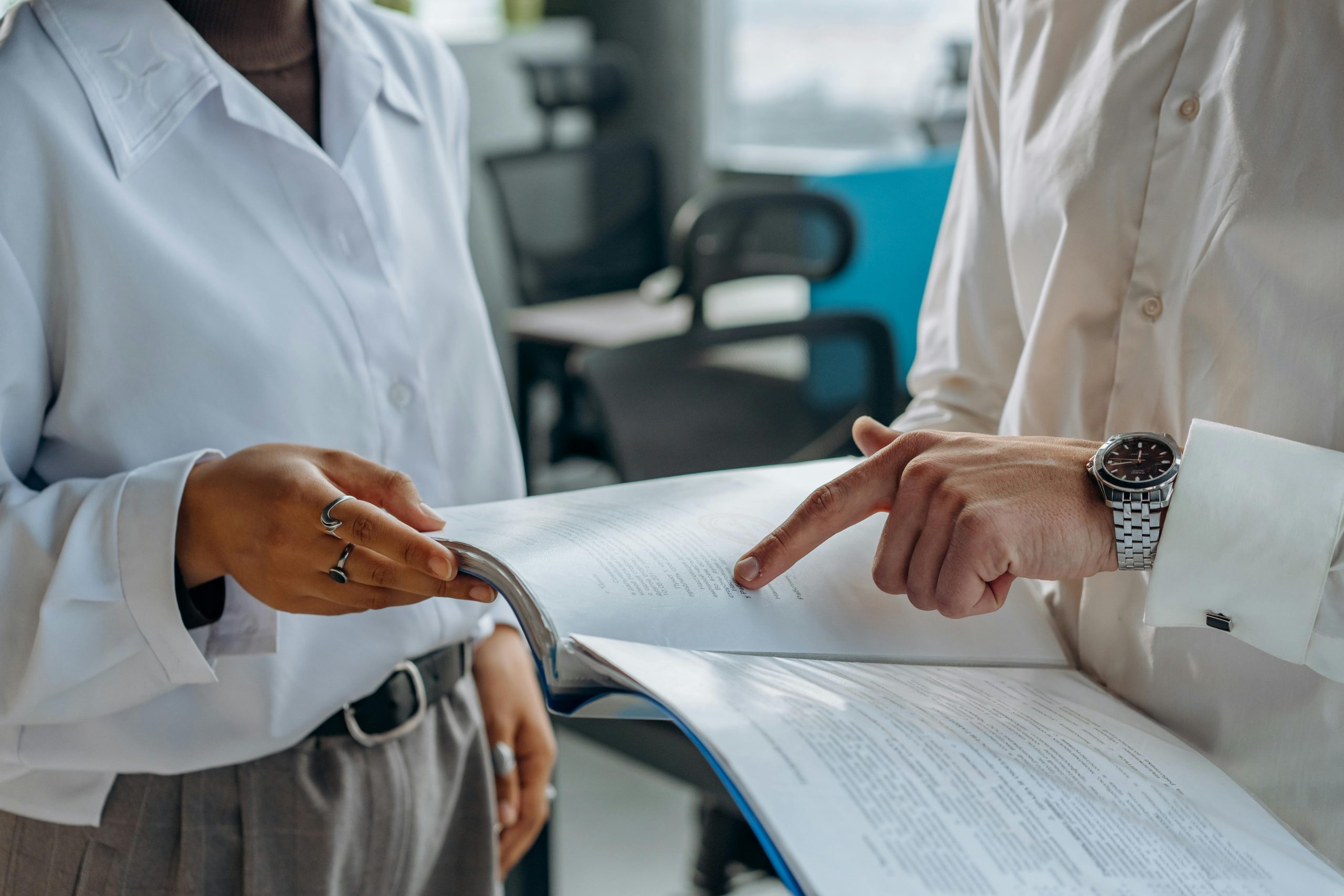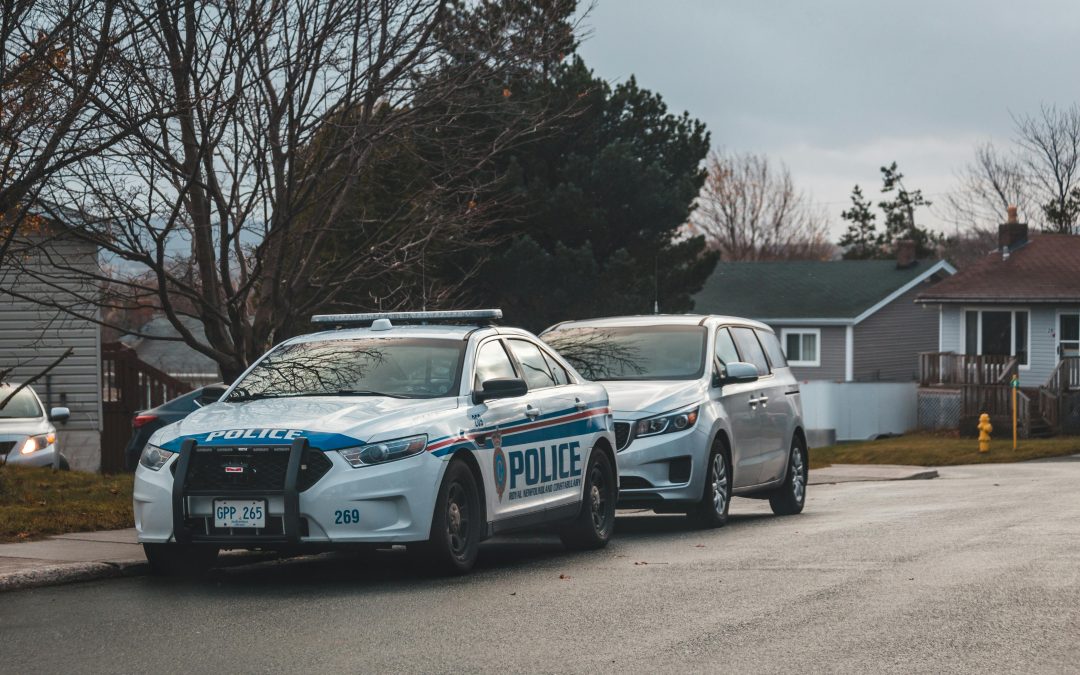Determining whether you need a lawyer for a minor car accident largely depends on the circumstances surrounding the incident. While it might seem straightforward, minor accidents can sometimes lead to complex legal and insurance issues. Understanding when legal assistance is beneficial could save you from unforeseen complications.
In this guide, we’ll explore the nuances of handling minor car accidents, the potential hidden damages and injuries that could escalate into major concerns, and how a lawyer can assist in navigating these complexities.
Knowing your options enables you to make informed decisions, ensuring your rights are protected and you are compensated fairly.
Why hiring a small accident lawyer is a good idea
Engaging a personal injury lawyer after a minor car accident significantly amplifies your chances of navigating the aftermath successfully. They not only offer protection against common pitfalls but also ensure your rights are vigorously defended.
In the following sections, we will dissect several crucial areas where having legal representation can be particularly advantageous.
But, before that, if you’re local to Connecticut, consider getting a free consultation with a Hartford personal injury lawyer to discuss next steps.


Protection against insurance tactics
Insurance companies, while essential in providing compensation for damages, often deploy tactics aimed at minimizing payouts to claimants. A seasoned car accident lawyer can be instrumental in safeguarding against these strategies. They have the expertise to negotiate aggressively with insurance adjusters, ensuring you receive a fair settlement.
Without legal representation, you may find yourself accepting offers that barely cover losses, leaving you financially strained. Lawyers are adept at calculating the true cost of an accident, considering not only immediate damages but also long-term effects such as ongoing medical treatments and loss of earnings.
Navigating complex legal procedures
Navigating the maze of legal procedures that follow an accident can be both daunting and complex, particularly for those unfamiliar with the intricacies of law.
From filing claims to understanding the statute of limitations in your state, a lawyer possesses the expertise to guide you through each step effectively. They can help in preparing necessary documentation, such as police reports and medical records, ensuring they are filed timely and accurately.
Additionally, lawyers can represent you in court if the case escalates, providing a strong defense and advocating on your behalf. Without this level of professional assistance, you run the risk of failing to present your case compellingly, which could detrimentally impact the outcome of your claim.
The importance of timely action
Acting swiftly after a minor accident can be crucial in protecting your interests and ensuring you receive the compensation you deserve. Time-sensitive elements, such as the collection of evidence and witness statements, can significantly influence the strength of your case. A lawyer familiar with car accident claims will emphasize the importance of immediate action to preserve valuable evidence that could become less reliable over time.
Furthermore, understanding and adhering to the statute of limitations in your state is imperative. Each state has its own set deadlines for filing a claim, and missing this window can result in the forfeiture of your right to pursue compensation altogether.
For example, the car accident statute of limitations in Connecticut is generally two years from the date of the accident to file a personal injury claim. This timeline can vary depending on the details of a case, making it crucial to consult with a lawyer as soon as possible after an accident.
Ensuring fair compensation
A lawyer plays a pivotal role in ensuring you are fairly compensated for both visible and invisible damages.
This includes compensation for:
- Medical expenses, both immediate and for ongoing treatments,
- Vehicle repairs or replacement
- Loss of wages
- Pain and suffering
They understand how to quantify the impact of the accident on your life and negotiate accordingly with insurance companies or in court.
Without professional legal guidance, you might overlook certain entitlements or undervalue the compensation. A lawyer’s understanding of local laws and regulations coupled with their experience in similar cases ensures that no stone is left unturned in seeking full compensation for your losses.
Handling the paperwork and negotiations
Between the insurance paperwork, legal filings, and communication with various parties, it’s easy to feel overwhelmed. This is where a lawyer’s expertise becomes invaluable.
A car accident lawyer will handle all the necessary paperwork, ensuring everything is completed correctly and submitted on time. They will also take over all negotiations with the insurers, relieving you of the stress of back-and-forth conversations that can often turn contentious.
Furthermore, a skilled lawyer will also coordinate with medical practitioners to ensure that your medical reports accurately reflect your injuries and the potential impact on your life. This meticulous attention to detail ensures that nothing is overlooked in your compensation claim.
Peace of mind
Having legal representation by your side throughout the process offers you peace of mind, knowing that every aspect of your case is being handled professionally and efficiently. This allows you to focus on your recovery, rather than the added stress of negotiating with insurers or navigating the legal system on your own.
The legal support not only bolsters your confidence in achieving a favorable outcome but also ensures that the process is as smooth and stress-free as possible. Ultimately, the reassurance of having expert legal guidance can make a significant difference in your post-accident experience.


How does a minor accident differ from a major one?
While both minor and major car accidents can have significant impacts, the differences between them primarily lie in the extent of damage and the potential for personal injury.
A minor accident typically involves less severe damage to vehicles, possibly limited to cosmetic issues or small dents and scratches that do not affect the car’s operational capabilities. Personal injuries in minor accidents, if any, are often not life-threatening and may include bruises, minor cuts, or whiplash.
In contrast, major car accidents usually result in significant damage to the vehicles involved, often requiring extensive repairs or resulting in total losses. The injuries sustained in these accidents can be severe, life-altering, or even fatal. These injuries may require prolonged medical treatment and rehabilitation, and could lead to long-term disability.
Also, the legal and insurance procedures following major accidents are usually more complex, given the higher stakes involved in terms of damages and compensations. For example, a settlement for a car accident death in Connecticut can go over $1,000,000 depending on the circumstances.
In contrast, the settlement for minor accidents is often in the range of a few thousand dollars to cover medical expenses and property damages.
Additional reading: average car accident settlement in Connecticut
Common scenarios where having a minor car accident attorney is crucial
Below are key situations where having a knowledgeable attorney by your side can make a significant difference:
Disagreement on fault
Determining fault in a car accident is not always straightforward, and disagreements can significantly delay resolution and compensation. In such scenarios, an experienced attorney is essential. They possess the skills to analyze accident reports, gather evidence, and consult with experts to build a strong case supporting your position.
Additionally, an attorney can effectively argue on your behalf, whether in negotiations with insurance adjusters or in court, ensuring that the determination of fault is fair and supported by solid evidence. This expertise is invaluable when facing contentious disputes, safeguarding your rights, and securing the compensation you are entitled to for damages and injuries sustained.
Additional reading: can you sue someone for reckless driving
Serious injuries requiring long-term care
Even in what appears to be a minor car accident, the impact can lead to serious injuries that may not be immediately apparent. These injuries can develop into conditions requiring long-term care, such as chronic pain, mobility issues, or cognitive impairments.
It’s in these circumstances that hiring an accident lawyer for a minor accident is crucial. They ensure that any compensation claims adequately account for both current and future medical expenses, rehabilitation costs, and any necessary adjustments to daily living.
Furthermore, they’ll advocate for compensation that covers the potential loss of earnings and quality of life, making sure that you or your loved ones are safeguarded against the long-term financial and emotional impact of the accident.
Insurance claim denials or lowball offers
When insurance denies your claim or presents you with an offer that significantly undervalues the extent of your damages and injuries, the attorney will have the expertise to challenge unfair denials and lowball offers.
Their negotiation skills will come to the fore, leveraging their knowledge of the law and the insurance industry to counteract tactics employed by insurance adjusters aimed at minimizing payouts. By meticulously reviewing your claim, gathering comprehensive evidence, and presenting a well-articulated argument on your behalf, an attorney can make a substantial difference in the outcome of your insurance settlement.
Of course, how much can someone sue for a car accident will depend on several factors, such as the severity of injuries and damages sustained. However, having an experienced attorney to handle negotiations can significantly increase your chances of receiving a fair settlement.
Additional reading: who pays for medical bills after a car accident
Steps to take following a minor car accident
Are you unsure about what to do after a car accident that’s not your fault?
Well, your priority should be ensuring the safety of all parties involved. Move to a safe location if possible, and check for any injuries. Call for medical help if there are any signs of injury, no matter how minor they seem.
Next, it’s essential to gather evidence at the scene:
- Exchange Information: Collect names, contact information, driver’s license numbers, insurance details, and vehicle registrations from all drivers involved.
- Document the Scene: Take photos of the vehicles, any visible damages, the surrounding area, traffic signs, and road conditions.
- Witness Information: If there are any witnesses, get their contact information as well; their accounts could be crucial later.
- Report the Accident: Notify the police so there is an official accident report, which can be vital for insurance and legal processes.
Typically, consulting a lawyer as soon as possible after ensuring everyone’s safety and gathering initial evidence can help protect your rights and interests. Most car accident attorneys offer a free initial consultation, providing an opportunity to understand your legal options without committing financially.
What we can do for you
Micheal L. Chambers Jr. is dedicated to advocating for your rights and ensuring you receive the necessary compensation.
Here are specific actions he and his team can take on your behalf:
Evidence gathering
We meticulously compile and analyze all relevant evidence to bolster your case. This includes acquiring traffic camera footage, police reports, medical records, and witness statements. Our team also conducts a detailed assessment of the accident scene, if necessary, employing the expertise of accident reconstruction specialists.
By establishing a comprehensive evidence base, we aim to construct a compelling argument that underpins your claim, facilitating a favorable outcome in negotiations or in court proceedings. Our commitment to thorough evidence-gathering is a cornerstone of our approach, ensuring that every aspect of your case is robustly supported and clearly presented.
Negotiating with insurers
Navigating the complexities of insurance claims can be daunting, particularly when facing insurers who are intent on minimizing their financial output. Our team brings a wealth of experience in dealing directly with insurance companies, armed with the knowledge and negotiation skills necessary to argue for a fair settlement.
We understand the tactics that insurance adjusters often employ to undermine claims, and we are prepared to counteract these strategies effectively. Our goal is to ensure that the compensation you receive reflects the true value of your claim, considering all your current and future needs.
By engaging in assertive negotiations on your behalf, we alleviate the stress and uncertainty that can accompany insurance disputes, allowing you to focus on your recovery and well-being.
Calculating damages
Calculating the total damages incurred requires a detailed understanding of both the immediate and long-term effects of your injuries.
Our approach begins with a comprehensive assessment of your medical expenses, including hospital bills, medication costs, physical therapy, and any future medical treatments or surgeries that may be necessary. Beyond these tangible costs, we also consider the impact on your earnings, including lost wages from time taken off work and potential future loss of earning capacity.
Additionally, we recognize the significance of non-economic damages such as pain and suffering, emotional distress, and loss of enjoyment of life. These aspects, while less tangible, are equally important in understanding the full impact of the accident on your life.
Representing you in court
While pursuing a settlement through insurance negotiations is often preferable due to its potential for a quicker resolution, there are instances where taking your case to court becomes necessary. When insurance companies refuse to offer a fair settlement that adequately covers your losses, litigation might be the only avenue to pursue the compensation you rightly deserve.
Our legal team is thoroughly prepared to represent you in court, bringing a robust litigating experience to your case. We handle all aspects of the trial process, from the filing of the lawsuit to presenting your case before a judge or jury.
Our goal is to ensure that your story is heard and that the evidence meticulously gathered is presented compellingly, maximizing your chances of a favorable verdict. We stand by our clients every step of the way, ensuring that they are informed and empowered throughout the legal proceedings.

Choosing the right lawyer for a minor car accident
Choosing the right lawyer is paramount to ensuring that you receive the best possible outcome for your case.
Below are some key factors to consider when choosing a lawyer:
- Engagement and Communication: A lawyer who takes the time to explain your case and communicate effectively can make a significant difference.
- Expertise and Dedication: Look for lawyers who are knowledgeable in their field and dedicated to achieving the best outcomes for their clients.
- Proven Track Record: Testimonials and case examples can provide insight into a lawyer’s capability to handle your case successfully.
- Client Satisfaction: Ultimately, the level of satisfaction expressed by previous clients can be a strong indicator of what you can expect.
The process when working with your attorney
When you work with a lawyer, they should significantly streamline the process of navigating the aftermath of an accident:
- Initial Consultation: most lawyers off a free consultation to evaluate your case, discuss the accident, and outline a preliminary action plan. This is a good opportunity to provide them with any evidence you already have, such as photos, witness contact information, and medical reports.
- Investigation and Evidence Collection: Once hired, your lawyer will conduct a thorough investigation, compile evidence, consult experts, and create an event timeline to establish the other party’s negligence.
- Filing an Insurance Claim: Your lawyer will file the claim for you, handling all communications to present your claim accurately and persuasively.
- Negotiation: You won’t have to do any negotiation at this point — your attorney will secure a settlement that covers losses including medical bills, lost wages, and other damages.
- Decision to Settle or Go to Trial: Your attorney will advise on whether to accept a settlement or proceed to trial, evaluating the benefits and risks of each option. Ultimately, this is your decision to make, though.
- Trial Preparation and Court Proceedings: If going to trial, the attorney will prepare for testimonies, cross-examinations, and evidence presentation.
- Resolution: The process concludes with a settlement or trial verdict, ensuring prompt collection of any awarded compensation and any post-trial matters.
Throughout every step of this process, your car accident lawyer is your advocate, working tirelessly to achieve an outcome that acknowledges the full extent of your losses and supports your recovery and well-being.
Common misconceptions about hiring a lawyer
Wondering if it’s worth hiring an attorney for a car accident? Many hesitate to hire a lawyer due to widespread misconceptions about the legal process and the costs involved. Here, we address and debunk some of these common myths:
- Hiring a lawyer is too expensive. Often, people assume they can’t afford legal representation, especially if they’re facing medical bills and lost wages. However, most car accident lawyers work on a contingency fee basis, meaning they only get paid if you win your case.
- My accident was minor, so I don’t need a lawyer. Even minor accidents can have significant legal and financial implications. What appears as minor injuries may develop into more serious ones, and without proper legal advice, you might settle for less than what you’re entitled to.
- Lawyers complicate things and prolong the process. In reality, a skilled lawyer streamlines the process, handling the complex legal work and negotiations while you focus on recovery.
- I can handle the insurance claim myself. While it’s true you can negotiate with insurance companies on your own, it’s important to remember that their goal is to minimize payouts. An experienced lawyer knows the tactics insurers use to undervalue claims and can negotiate effectively on your behalf to secure a better settlement.
- The court process is too stressful and risky with a lawyer. The thought of going to court can be daunting, and many assume it’s a stressful process best avoided. However, a lawyer by your side significantly reduces the stress involved, preparing your case and guiding you through each step.
Ultimately, the decision to hire a car accident lawyer should be based on your unique situation and the complexity of your case. However, don’t let misconceptions prevent you from seeking the legal support you need to receive compensation that’s fair.
Local laws and regulations in the Constitution State
Connecticut operates under an “at-fault” system. This means that the driver who is determined to be at fault for an accident is responsible for any harm caused, including injuries, vehicle damage, and other losses.
Furthermore, Connecticut employs a modified comparative fault rule whereby an injured party can still recover damages if they are partially at fault for the accident, provided their degree of fault does not exceed 50%. However, the amount of compensation they receive will be reduced by their percentage of fault.
For instance, if you are found to be 30% responsible for an accident, your compensation will be reduced by 30%. It’s crucial to understand that if your fault exceeds 50%, you are barred from receiving any compensation through a lawsuit in Connecticut.
Given these nuanced laws and regulations, having a local lawyer who is deeply versed in Connecticut’s legal landscape is invaluable. A local lawyer will not only be familiar with the state’s at-fault and comparative-fault rules but also with the specific procedures and timelines for filing claims or lawsuits in Connecticut.
Need a minor car accident lawyer in Connecticut?
If you’ve been involved in a minor car accident in Connecticut and are unsure about your next steps, don’t hesitate to reach out for professional legal guidance. Our experienced car accident lawyers are committed to helping accident victims understand their rights and options.
Michael L. Chambers Jr. offers a free, no-obligation consultation to discuss the specifics of your case and determine the best path forward. This consultation is your opportunity to ask questions, receive expert advice, and learn how we can help you secure compensation, without any upfront costs.
If you’re in Connecticut, contact us today for a free case evaluation with a Hartford car accident lawyer and take the first step toward recovery and peace of mind.
Key takeaways
Indeed, the aftermath of a car accident can be overwhelming and confusing. However, hiring a lawyer can help ease this burden and ensure you receive fair compensation for your losses.
Keep in mind that while hiring a lawyer is not always necessary, it can greatly benefit you in complex cases or when dealing with uncooperative insurers. Additionally, understanding the local laws and regulations governing car accidents in Connecticut is crucial for filing successful claims.
Having a knowledgeable and local expert fighting your corner provides an added advantage in navigating these legal complexities.

FAQs
Can I handle a minor car accident claim myself, or should I always hire a lawyer?
While it’s possible to handle a minor car accident claim yourself, consulting with a lawyer is advisable to ensure you’re not settling for less than you deserve. Lawyers can help negotiate better settlements and identify potential legal issues you may overlook during the claims process.
How do I know if my car accident qualifies as 'minor'?
A car accident is typically considered minor if it results in no injuries to any party involved and only causes minimal property damage, such as small dents or scratches to the vehicles. It’s important, however, to get a professional evaluation to ensure no underlying issues are missed.
What types of damages can I recover from a minor car accident?
In a minor car accident, you may be able to recover damages for property damage, medical expenses if there were any injuries, and possibly for loss of personal items in the car. Compensation for pain and suffering is less common in minor accidents but not entirely out of the question.
Will hiring a lawyer for a minor car accident result in a larger settlement?
Hiring a lawyer for a minor car accident can potentially result in a larger settlement. A skilled and experienced car accident lawyer understands how to accurately evaluate damages and negotiate with insurance companies, often securing more favorable settlements than individuals might obtain on their own
How does the payment for a car accident lawyer work?
Most car accident lawyers work on a contingency fee basis, meaning they only get paid if you win your case in court. Their fee is typically a percentage of the settlement amount or court award, ensuring that clients can seek legal representation without upfront costs.
